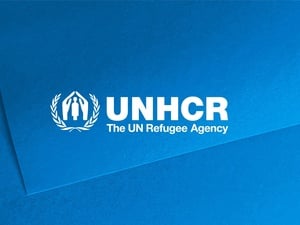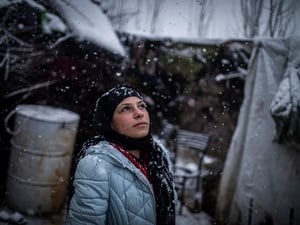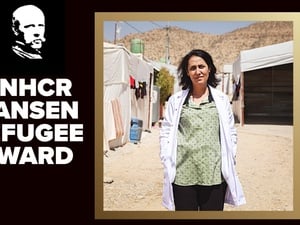UN Humanitarian Briefing on Iraq
UN Humanitarian Briefing on Iraq
Arrivals from Iraq
Several newspapers and columnists continue to publish erroneous reports that large numbers of Palestinians are waiting at the Al Karama frontier seeking entry into Jordan. There is no truth behind the reports that 6,000 Palestinians are currently trying to enter Jordan.
The UNHCR/Jordanian Hashemite Charity Organisation (JHCO) camp at Ruwaished shelters more than 550 Palestinians who have been permitted to cross into Jordan in recent weeks along with some 100 other persons, mainly their Jordanian spouses. Only 64 Palestinians remain in the no man's land, some of whom the Jordanian authorities say lack valid documents.
The first few Palestinians who reached Jordan after the fall of Baghdad arrived with almost nothing. Members of this first wave reported that their landlords had ordered them to leave their homes, or that they had otherwise been threatened. The majority of the Palestinians now arriving are coming with personal effects, indicating that they had time to organise themselves and pack.
These 550 Palestinians in the UNHCR/JHCO camp are a fraction of the estimated up to 90,000 Palestinians who reside in Iraq. The reports of expulsions and intimidation that some of them have brought from Baghdad are a grave concern. We have called on the occupying power to ensure security for all residents of Iraq, as well as for all Iraqis to act responsibly towards their neighbours.
Elsewhere, UNHCR remains very concerned about the precarious conditions of the some 1,000 people living in the no man's land zone separating Iraq and Jordan. Among those people waiting at Al Karama are more than 40 Iraqis, some of whom fled Baghdad, Diwaniyah, and other cities at the height of the fighting one month ago, while others arrived more recently.
UNHCR's Representative in Jordan met with the Minister of Planning on Tuesday and discussed the delays faced by these Iraqis in obtaining temporary protection in Jordan.
Every Iraqi fleeing their homeland should receive temporary protection at the refugee camp in Ruwaished. We see no reason why these Iraqis, women, children, and men, should be forced to wait in the no man's land for weeks.
No asylum seeker should be forced to wait in limbo in no man's land, or be summarily sent home. Iraqis seeking the protection of temporary asylum should instead be sheltered in a refugee camp and subject to the appropriate screening procedure.
Others stuck at the Jordan's border with Iraq include more than 930 Iranian ethnic Kurds who fled the Al Tash refugee camp, 120 km west of Baghdad, in recent weeks.
In the spirit of cooperation that guides the UN refugee agency's work with the Jordanian authorities, we sent a team into western Iraq today to look into the possibility of establishing a temporary camp there for anyone who does not require the protection of the government of Jordan, although we have not committed ourselves. Ideally, it would be best if these Iranian refugees could return to Al Tash camp in safety.
We hope the UN's return this week to central Iraq will help to reassure the remaining some 11,000 refugees in Al Tash, as well as the Iranian ethnic Kurds in no man's land who previously fled the camp.
For the 33 Iranian Persians waiting in no man's land who were previously refugees elsewhere, we are advocating their readmission to their countries of first asylum, and we're currently awaiting replies from those states.







